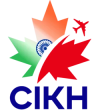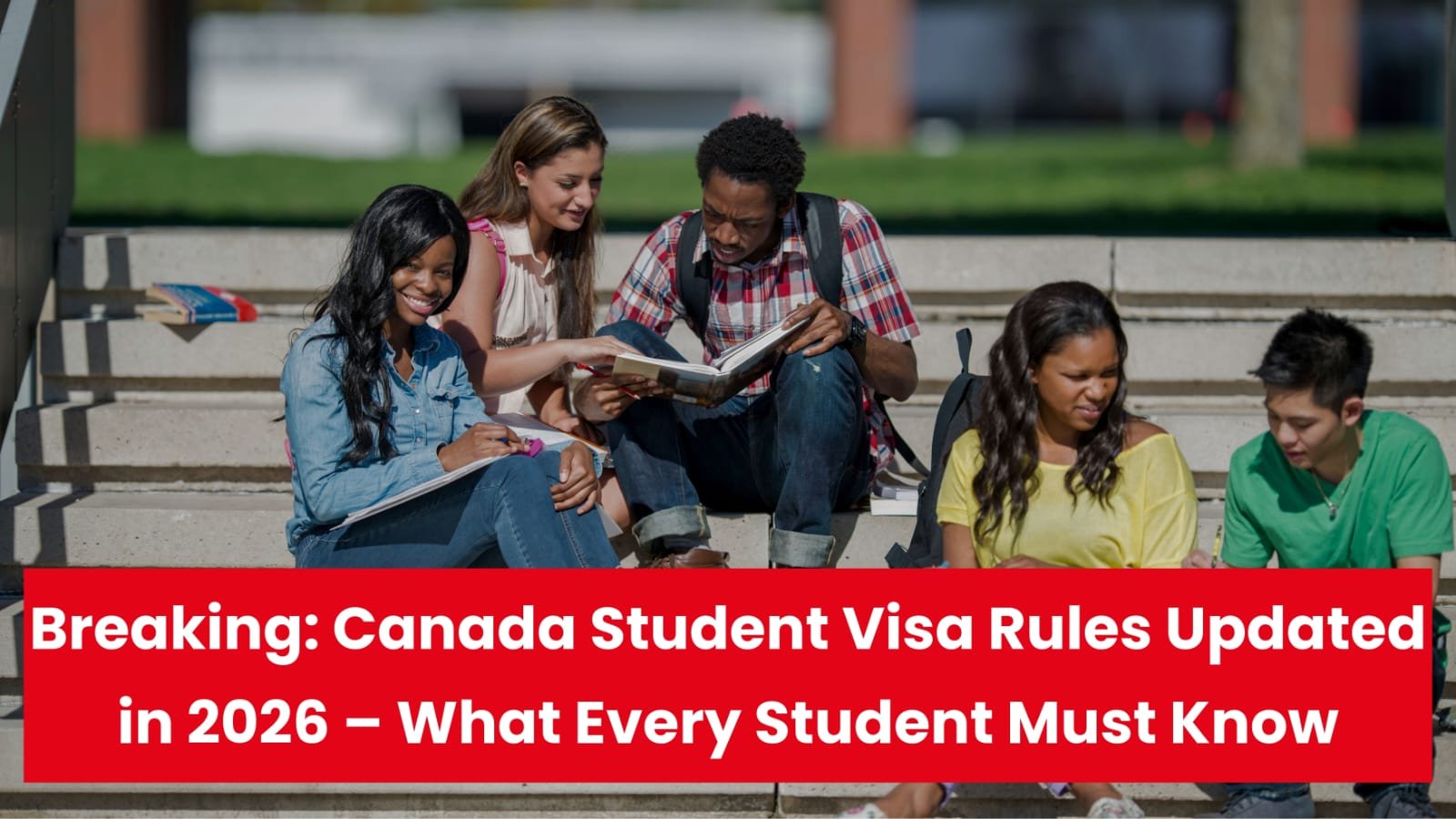Ontario’s Express Entry Human Capital Priorities Stream is part of the Ontario Immigrant Nominee Program (OINP). This stream offers foreign workers with the necessary skills, language proficiency, and education a chance to secure permanent residency in Ontario.
One of the key benefits of this stream is that you do not need a job offer to apply. It’s designed to help skilled workers who meet the program’s criteria to live and work permanently in Ontario.
To be eligible, you must have an active profile in Immigration, Refugees and Citizenship Canada’s (IRCC) Express Entry system. Additionally, you need to receive a Notification of Interest from Ontario. Once you receive this notification, you can apply online for a provincial nomination from the Ontario government, bringing you one step closer to permanent residency.
Navigation Guide
- Stream Requirements
Work Experience
Education
Language Proficiency
Settlement Funds
Intention to Live in Ontario
Legal Status in Canada (if applicable)
Federal Skilled Worker Program Eligibility - Notifications of interest issued in 2024 to date
Stream requirements
1. Work Experience
You must choose which of the following two federal programs you want to be assessed under:
- Federal Skilled Workers Program (FSWP)
- Canadian Experience Class (CEC)
Federal Skilled Worker Program (FSWP)
To qualify under the FSWP, you need to have:
- At least one year of continuous paid full-time work experience (or equivalent in paid part-time work) in a TEER Category 0, 1, 2, or 3 occupation according to the National Occupational Classification (NOC).
Your work experience must:
- Be obtained within the last five years from the date you submit your application to the Ontario Immigrant Nominee Program (OINP).
- Be in the same primary occupation that you identified in your Express Entry profile.
This work experience can be acquired in Canada or abroad.
Continuous Work Experience means:
- No breaks in employment over a one-year period.
Please note: Your work experience can include consecutive jobs with the same or different employers, as long as there are no gaps in employment. However, at least one year must be in the same NOC occupation as your primary NOC declared in your Express Entry profile.
If you are relying on self-employment experience, you must provide independently verifiable documentation through third parties. This may include client reference letters that detail your duties and periods of work, along with evidence of ongoing payments made to you personally for services provided (e.g., invoices). It’s essential that the hours of your self-employment work are quantifiable to confirm that you have accumulated at least 1,560 hours over one year. Reference letters from yourself, business partners, or family members are not accepted.
Canadian Experience Class (CEC)
To qualify under the CEC, you must:
- Have at least one year of cumulative paid full-time work experience (or equivalent in paid part-time work) in Canada in a TEER Category 0, 1, 2, or 3 occupation according to the NOC.
- If you received a Notification of Interest as part of a targeted draw, you must demonstrate that at least six months of your eligible one-year work experience is in your primary NOC.
Your work experience must:
- Be obtained within the last three years from the date of submitting your application to the OINP.
- Be in one or more of the occupations you identified in your Express Entry profile.
- Be gained in Canada while maintaining legal status in the country.
Cumulative Work Experience means:
- The work you’ve done must add up to one year, but it doesn’t need to be continuous.
Please note: Paid work experience gained while studying full-time at a post-secondary institution (e.g., during a co-op work term) and self-employment are not eligible under the CEC.
General Requirements for Both Programs
- Your work experience must have been acquired over a period of at least one year. Work experience totaling 1,560 hours obtained in less than a one-year period does not qualify.
- Full-time work experience means working in a job with at least 30 hours of paid work per week, amounting to at least 1,560 hours of paid work in one year.
- Part-time equivalent work experience means:
- Working in one job for at least 15 hours per week for two years, amounting to at least 1,560 hours in that two-year period, or
- Working in more than one job for at least 30 hours per week for one year, amounting to at least 1,560 hours of paid work in that one-year period.
- If your work experience was obtained in Ontario in an occupation that requires a license or other authorization, only work experience acquired after becoming qualified to practice that occupation in Ontario will be considered.
- Volunteer work and unpaid internships do not count as work experience.
- Vacation periods, regular sick leave, and other standard paid leave entitlements as provided for in collective agreements, workplace legislation, and/or individual employer policies are not considered interruptions to full-time employment. Extended leaves are considered interruptions to full-time employment and should not be included in the calculation of work experience.
2. Education
To qualify, you must have a Canadian bachelor’s, master’s, or PhD degree, or an equivalent degree from another country.
Nurses don’t need to meet this education requirement if they:
- Are registered with the College of Nurses of Ontario (CNO) in the General, Extended, or Temporary class.
- Work in one of the following occupations:
- NOC 31300 – Nursing coordinators and supervisors
- NOC 31301 – Registered nurses and registered psychiatric nurses
- NOC 31302 – Nurse practitioners
- NOC 32101 – Licensed practical nurses
If you completed your studies outside Canada, you’ll need an Educational Credential Assessment (ECA) report to show that your education is equivalent to a Canadian degree. This assessment must be done by one of the organizations designated by IRCC:
- Comparative Education Service – University of Toronto School of Continuing Studies
- International Credential Assessment Service of Canada
- International Credential Evaluation Service
- International Qualifications Assessment Service
- Medical Council of Canada (for doctors)
- Pharmacy Examining Board of Canada (for pharmacists)
- World Education Services
Each organization has different fees and processing times, so check their websites to find the best option for you.
When you apply, you must include a copy of your ECA report, which should be no more than five years old. The Ontario Immigrant Nominee Program (OINP) needs to verify your ECA results with the organization, so you must authorize them to share the results with OINP.
To authorize this sharing:
- Comparative Education Service: Submit an online request form.
- Medical Council of Canada: Request the report, then log in to your physiciansapply.ca account and request a file transfer, entering ontarionominee@ontario.ca as the recipient’s email address.
- World Education Services: Order a copy of your report online and list “Ontario Immigrant Nominee Program” as the recipient.
For other organizations, no extra steps are needed.
If you have questions about getting an ECA or authorizing the sharing of results, contact the ECA organization directly. Make sure to specifically authorize sharing with OINP, not just with IRCC.
3. Language
Applicants must demonstrate proficiency in either English or French at a Canadian Language Benchmark (CLB) level 7 or higher. This includes the ability to understand, read, write, and speak the language.
To prove language skills, an approved English or French language test must be taken before submitting the application. The test date must be within the last two years.
For English tests, the following are accepted:
- International English Language Testing System (IELTS) — Only the General Training test is accepted. The IELTS One Skill Retake test is not accepted.
- Canadian English Language Proficiency Index Program (CELPIP) — Only the General test is accepted.
- Pearson Test of English (PTE) Core — Only the PTE Core test is accepted; the PTE Academic test is not accepted.
For French tests, the following are accepted:
- Test d’évaluation de français pour le Canada (TEF)
- Test de connaissance du français pour le Canada (TCF Canada)
4. Settlement funds
You must have sufficient funds to support yourself and your dependent family members when you settle in Canada. Dependent family members include your spouse, common-law partner, and children under the age of 22, as well as their children.
You can meet this requirement through one or a combination of the following:
- Funds shown in bank statements or statements of accounts that reflect other investments such as non-locked-in fixed-term deposits, mutual funds, etc.
- Annual earnings from ongoing employment in Ontario
- A job offer in Ontario
This requirement applies to all applicants, regardless of whether they are assessed under the Canadian Experience Class or the Federal Skilled Worker Program.
Example: If the required amount for your family size is $29,000 (CAD), and you have a job offer in Ontario with an annual salary of $25,000 plus $5,000 in your savings account, you would meet the settlement fund requirement with a total of $30,000 using both your job offer and bank statement.
Note: If bank statements show a large one-time deposit, additional documentation may be requested to prove that these funds are free from debt or liabilities.
5. Intention to Live in Ontario
You must show that you intend to reside in Ontario after being granted permanent residency. This is assessed based on your connections to Ontario, which may include:
- Working or having worked in Ontario
- Receiving job offers or applying/interviewing for jobs in Ontario
- Studying in Ontario
- Volunteering in Ontario
- Leasing or owning property in Ontario
- Visiting Ontario
- Having professional networks and affiliations, family connections, and personal relationships in Ontario
6. Legal Status in Canada (if applicable)
If applying from within Canada, you must have legal status at the time of your application (such as a visitor record, study permit, or work permit) and maintain that status until you are nominated.
You may still apply if you are in ‘maintained status’ when you submit your OINP application. ‘Maintained status’ means that you have applied to Immigration, Refugees and Citizenship Canada (IRCC) to renew or extend your temporary status document (visitor record, work permit, or study permit) before it expired. You can stay in Canada and continue to work or study under the same conditions as your existing permit while waiting for a decision on your pending IRCC application.
7. Federal Skilled Worker Program
If you opt to be assessed under the Federal Skilled Worker Program (FSWP), you must achieve a minimum of 67 points across the six selection factors, which are education, language skills, work experience, age, arranged employment in Canada, and adaptability.
Notifications of interest issued in 2024 to date
Human Capital Priorities stream | |||
Date NOIs issued | Number of NOIs issued | CRS score range | Profiles created in IRCC Express Entry system |
September 19, 2024 | 1,424 | 505-528 | September 19, 2023 – |
September 12, 2024 | 1,269 | 414-444 | September 12, 2023 – |
209 | 395-444 | July 25, 2023 – | |
1,240 | 425-444 | July 18, 2023 – | |
March 21, 2024 | 2,281 | 468-480 | March 21, 2023 – March 21, 2024 |
March 7, 2024 | 2,104 | 352-421 | March 7, 2023 – March 7, 2024 |
February 8, 2024 | 2,118 | 471–480 | February 8, 2023 – February 8, 2024 |
February 6, 2024 | 2,086 | 379-430 | February 6, 2023 – February 6, 2024 |
French-Speaking Skilled Worker stream | |||
Date NOIs issued | Number of NOIs issued | CRS score range | Profiles created in IRCC Express Entry system |
September 26, 2024 | 243 | 290-445 | September 26, 2023 - |
September 5, 2024 | 86 | 290-393 | September 5, 2023 - |
June 20, 2024 | 212 | 305-409 | June 20, 2023 – June 20, 2024 |
January 18, 2024 | 984 | 317-469 | January 18, 2023 – January 18, 2024 |
Skilled Trades stream | |||
Date/time NOIs issued | Number of NOIs issued | CRS score range | Profiles created in IRCC’s Express Entry system |
October 17, 2024 | 1,307 | 405-435 | October 17, 2023 – |
August 22, 2024 | 1,287 | 400-435 | August 22, 2023 – |
1,277 | 408-435 | July 11, 2023 – July 11, 2024 | |
March 1, 2024 | 2,583 | 350-424 | March 1, 2023 – March 1, 2024 |
January 11, 2024 | 2,552 | 350-424 | January 11, 2023 – January 11, 2024 |
Subscribe to our newsletter!





